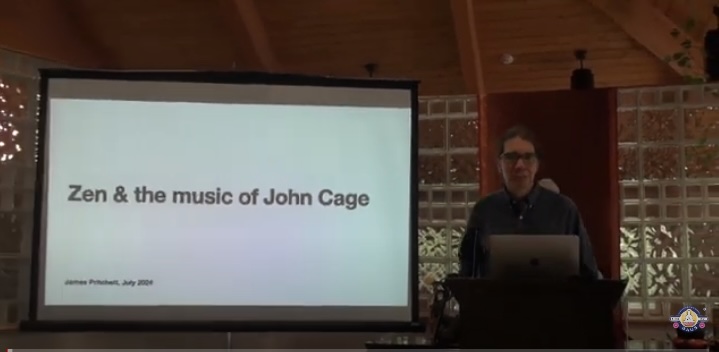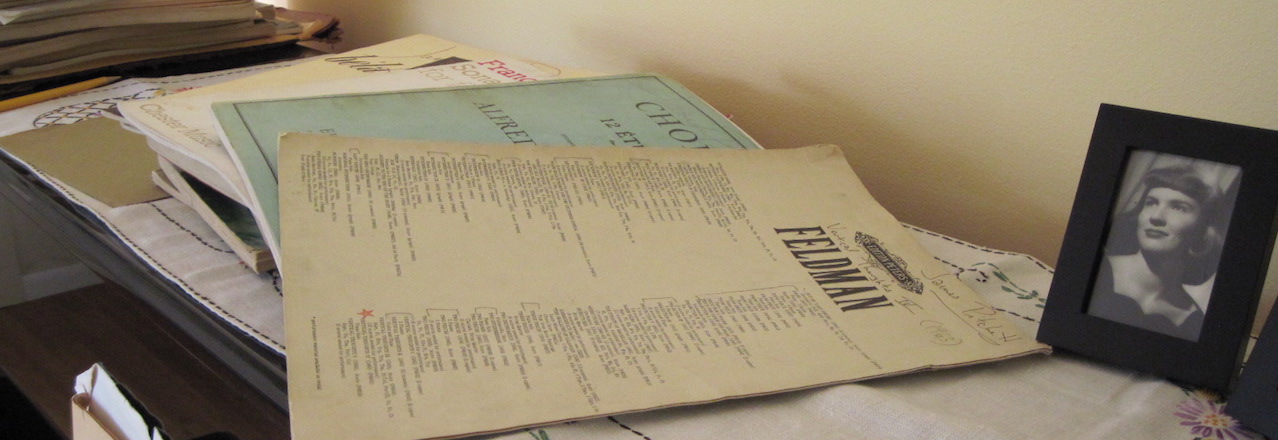
There has been much written about John Cage and his interest in Zen Buddhism. It is often highlighted as a source of his radically empirical aesthetic, his embrace of silence, and his reliance on randomness in his music. In my own writings, however, I’ve avoided the subject. I devoted a couple of pages to Zen in my book on Cage’s music, but that’s about it. My extended writing on Cage’s spiritual journey has hardly any mention of Zen at all.
But, like 4′ 33″, the silent piece (another perennial Cage subject that I avoided for years), Zen has been nagging at the back of my mind ever since I wrote that series about Cage’s spiritual journey. Then, out of the blue, the opportunity arose to take a deeper look. I received an invitation from the library at Chuang Yen Monastery in Carmel, New York to speak about Zen and John Cage. They were planning a series of concerts and talks on the theme of Buddhism and music, and this was a topic that was of interest to them. I happily accepted the invitation, and I delivered my talk in late July. It’s now available on YouTube.
Preparing the lecture, I immersed myself once again in sources that I hadn’t looked at since I wrote my book on Cage over thirty years ago. Overall, I’m still in agreement with what I wrote then:
The relationship of Cage’s composition to his study of Zen Buddhism was not one in which Zen “influenced” him to act and think in certain ways: Cage’s understanding of Zen was shaped as much by his compositional concerns as his composition was shaped by his interest in Zen.
I’d modify that today to say that Zen didn’t so much shape Cage’s music as it provided him a framework to justify and explain it. As such, I see Zen’s impact far more prominently in Cage’s writings than in his music. I have a lot more knowledge of Buddhism (partly from personal experience) than I had thirty years ago, and the clash between my take on Buddhism and Cage’s was a new development for me as well. As a follow up, I’m planning to write a series of more in-depth essays in the near future about subjects related to Zen and Cage.
The lecture is about an hour and was tailored to a non-specialist audience: people who know something about Buddhism but probably not a lot about Cage. A note about the audio: the recording quality of the lecture is pretty good, but the musical examples distort in the louder passages. The lecture lasts an hour, I played the complete Mode recording of Cage’s Ryoanji (starting at about 1:05:30), and then there’s a short question-and-answer period (starting at 1:23:30).

Pingback: R. H. Blyth and Cage's introduction to Zen - James Pritchett
Pingback: Zen and Cage: Suzuki’s drawing of the mind - James Pritchett